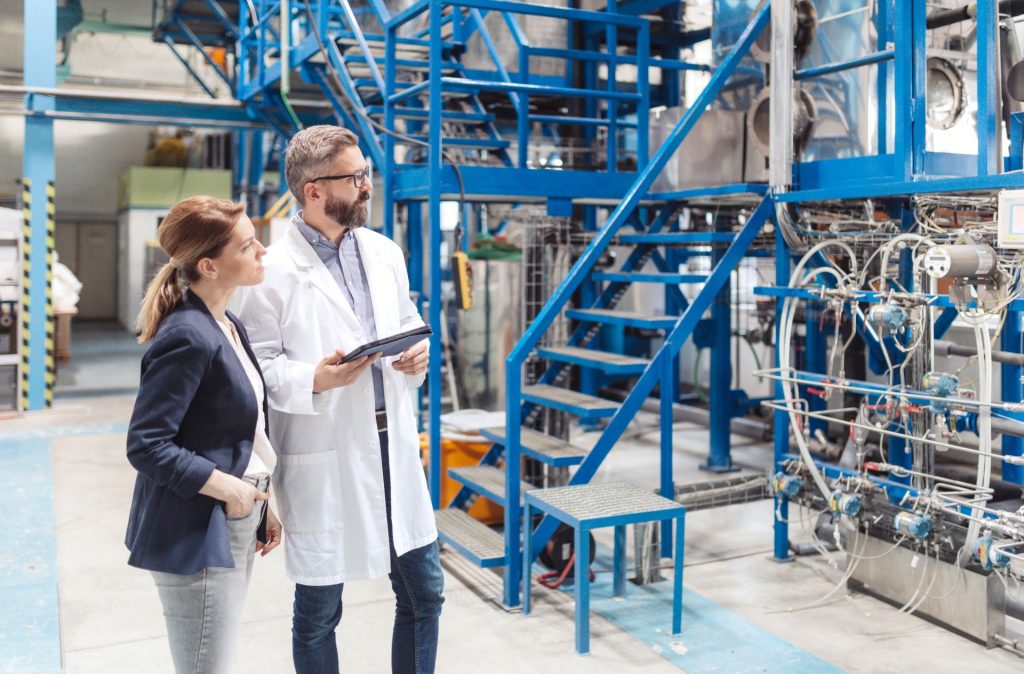Industrial Chemical Pumps in Glenwood, IA
Glenwood IA Drum Pumps
Drum pumps are utilized for a variety of industrial, commercial, and residential purposes that all entail transferring liquids from sizable drums or containers to other places where the liquid is needed. This involves moving liquids like water, oil, gasoline, and a variety of other kinds of chemicals. Drum pumps are useful for filling containers and for use in manufacturing because they can dispense fluids in precise volumes.
Drum pumps are widely used in a variety of sectors, including industrial, agriculture, and mining. Drum pumps are used in chemical processing businesses for things like food processing and pharmaceuticals. Drums are a common container in the water treatment and construction sectors, hence these businesses also employ drum pumps.


Glenwood Small Centrifugal Pumps
Centrifugal pumps' high flow rates and capacity to handle large volumes of fluid are two of their main advantages. Additionally, they have a fairly simple design that is simple to maintain. Applications for Centrifugal pumps include water treatment, irrigation, oil & gas production, and chemical processing. Centrifugal pumps come in a variety of designs, including axial, mixed, and radial flow pumps. Each type has its own distinct set of qualities and is created for particular applications.
Choosing the Correct Drum Pump in Glenwood IA
When selecting the ideal drum pump for a specific use, there are several factors that should be taken into account. These factors include:
- Safety considerations: Pick a pump that complies with applicable safety regulations and is suitable for the unique dangers prevalent in your application. Make sure the pump is explosion-proof, for instance, if you are transporting explosive liquids.
- Size and weight: Take into account the size and weight of both the pump and the drum or other container from which you will be transferring the liquid. Verify that the pump can fit inside the drum and is not too heavy to handle.
- Power source: Choose a pump that will meet the demands of your application and the type of power source you have available.
- Price: Establish your spending limit and select a pump that satisfies your requirements at a cost you are comfortable paying.
- Volume and flow rate: Consider both the volume and flow rate of the liquid you need to move. Ensure that the drum pump you select has a flow rate that meets your requirements.
- Compatibility with the medium being transferred: Different models of drum pumps are specifically designed to handle different types of liquids. It is crucial to select the pump that is compatible with the type of liquid you need transported, as some liquids or chemicals can be too abrasive or viscous to work with certain models.


Practical Applications for Drum Pumps in Glenwood, IA
- Gasoline production: The oil and gas industry uses drum pumps to transport fluids like oil.
- Water treatment: In water treatment facilities and other locations where clean water is required, drum pumps are used to move water and other fluids.
- Chemical processing: Drum pumps are used to move chemicals in a range of chemical processing applications, such as the manufacture of personal care products, food processing, and pharmaceuticals.
- Agriculture: Drum pumps are used to deliver water and other fluids to plants and crops.
- Manufacturing: Fluids like coolants, lubricants, and cleaning agents are transferred using drum pumps in manufacturing settings.
- Drum pumps are used in the mining sector to move fluids like chemicals and water.
- Drum pumps are used in power generation facilities, such as nuclear power plants and coal-fired power plants, to move fluids.
- Construction: To transport construction materials like concrete and grout, drum pumps can be used.
Glenwood IA Drum Pumps
Drum pumps are used for a wide range of commercial, industrial, and residential applications which all involve moving liquids from large drums or containers to other locations where the liquid is required. This includes transferring liquids such as water, oil, gasoline, and various other types of chemicals and liquids. Additionally, drum pumps can be used to dispense fluids in specific amounts, making them practical for filling containers and for uses in manufacturing.
Drum Pumps are popular in industries such as mining, agriculture, and manufacturing. Chemical processing industries rely on drum pumps for things like food proccesing and pharmaceuticals. Even water treatment and construction industries use drum pumps as drums are a regular container in these industries.

